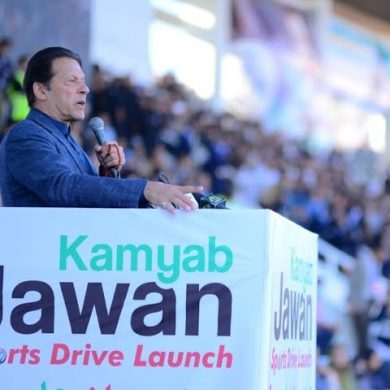A major part of Pakistan Tehreek e Insaf’s (PTI) manifesto was fairness in elections. After protesting against the opposition, Pakistan Muslim League (PML-N), for 126 days in the last term for rigging the elections in their favor. Pakistan Tehreek e Insaf assured the people of Pakistan that transparency in this process will be one of their main goals.
This year in early May, Prime Minister Imran Khan emphasized through a tweet the determination of his government to bring electoral reforms which will ensure evenhanded elections to uphold the meaning of a true democracy. One of the reforms was to introduce EVMs (Electronic Voting Machines), which not only fulfilled the thirty-six requirements of the ECP (Election Commission of Pakistan) by being user-friendly, and produced results efficiently to eliminate the doubts of rigging or falsifying of votes.
Then in mid-May 2021, Fawad Chaudhry, the Minister of Information and Broadcasting, along with his colleague Babar Awan, Adviser to the Prime Minister on Parliamentary Affairs, presented five prototype models, out of which three were imported and two were locally manufactured, to be used in the electoral process. The ECP was to select a model as per their guidelines to inhibit any fraudulent activity that may be involved in the process.
Yesterday, on 5th August, the Federal Minister of Science and Technology, Shibli Faraz presented the PM with the new locally created EVM as per the specifications of the ECP. When compared with the previous device, which was rejected by the ECP for only fulfilling twenty percent of the requirements, this machine that was developed in only 12 weeks fulfilled ninety-eight percent of ECP’s criteria. This device could not be infiltrated due to the absence of an operating system and an internet connection, however, it would keep a record of the votes for assessment purposes in the instance that the results are contested.
This presentation gave a detailed overview of the operational process and the production requirements, which included an estimated cost of each machine to be at Rs.65,000 and an internal manufacturing capacity shared between three universities to be at 2,000 units.



